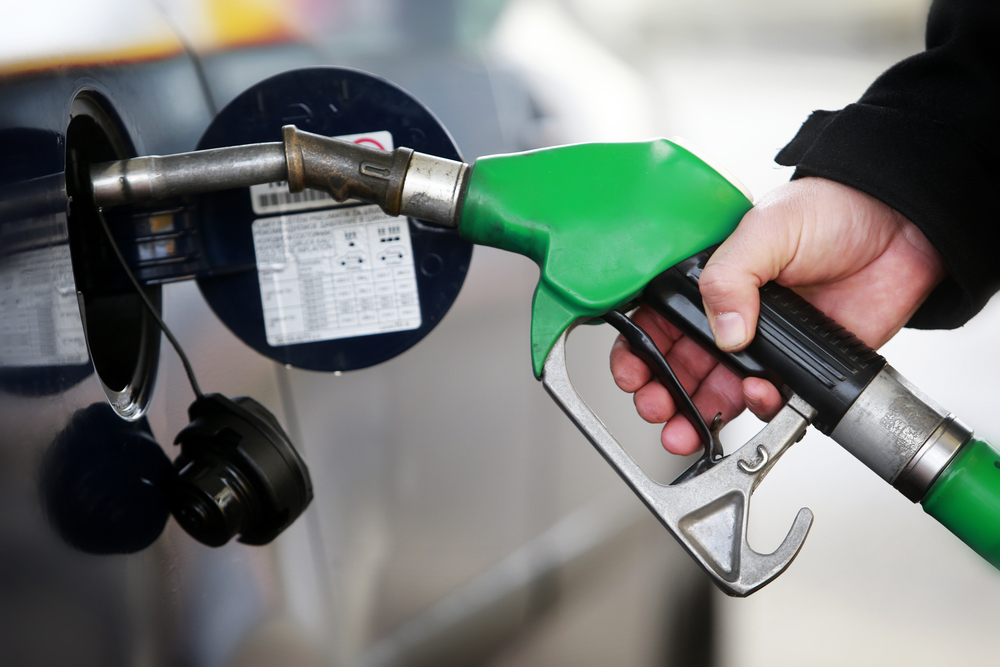Household Bills
Is a fuel duty cut on the way?

With record high pump prices adding to the cost-of-living crisis, reports suggest the Chancellor’s considering a 5p a litre fuel duty cut.
The average price of unleaded stands at 165.89p per litre while diesel drivers are shelling out 176.76p per litre on average, according to the latest fuel watch data from The RAC.
Currently, fuel duty costs around 58p a litre, while VAT is almost 28p per litre so on a 55-litre tank, £47.30 is tax alone.
In the Autumn Budget 2021, the Chancellor, Rishi Sunak, confirmed fuel duty would be frozen for the 12th year in a row in 2022/23 after the planned hike was scrapped.
And now reports suggest Wednesday’s Spring Statement could see Sunak go one step further to ease financial pressures for millions of Brits, by cutting fuel duty by 5p a litre.
‘Drop in the ocean’
However, Sarah Coles, senior personal finance analyst at Hargreaves Lansdown, said: “A fuel duty cut isn’t enough to ease the horrible squeeze on incomes this spring. Over the weekend, there were reports that the government’s line on easing the cost-of-living crisis softened. However, the Chancellor isn’t set to shower us with good news – it’s a drop in the ocean.
“There were reports of a 5p cut in fuel duty, which while a welcome change, would still leave the government making 80p a litre at the pumps. With the cost of unleaded at eye-watering highs, this isn’t going to be enough to stop people from having to make very difficult decisions about how and where they travel in future.”
Indeed, a survey by FairFuelUK revealed that drivers are already changing their habits due to the crippling fuel price rises.
Of the 18,000 people polled, a third said they are cutting down on driving, with nearly half (47%) saying they’re curtailing visits to family. A third said they are cutting back on medical appointments while one in five said they’ll use their car less for commuting to work.
Howard Cox, founder of FairFuelUK said: “Our latest survey of opinion shows; the eye watering pump prices, inflicted on one of the world’s already highest taxed drivers are forcing motorists to change their driving routines, with around half reluctantly sacrificing their hobbies, personal entertainment, eating out and recreational road trips. These reduced and reluctant road user choices predictably cut income to the Exchequer too.
“In FairFuelUK’s online survey, over a third of respondents said they are having to cut back on driving. Even driving to medical appointments and carrying out voluntary work are being affected because of profiteering unnecessarily sky-high pump prices.”
The group added that in the week commencing 8 March, petrol increased 9p (156p to 165p) and diesel 12p (163p to 175p) at the pumps, but in the same period oil dropped $30 ($128 down to $98).
Petition calling for fuel duty and VAT cut
A petition via the official government website has called for fuel duty and VAT to be cut by 40% over the next two years to “effectively offset the rise in fuel prices since 2020”.
More than 97,000 people have signed and if petitions gain 10,000+ signatures, they trigger a response from the government.
At 100,000 signatures, the petition will be considered for debate in Parliament.
The government responded: “The Government is taking targeted action to help families across the UK with the cost of living, which includes freezing fuel duty in 2022/23, the twelfth consecutive year.
“Crude oil prices and petrol pump prices regularly fluctuate, and there has been significant volatility in oil and gas prices over the last few months. The Government does not set the prices paid at the pump, nor wider oil prices. The degree to which petrol pump prices respond to changes in crude oil prices is a commercial matter.
Recognising that fuel is a major cost for households and businesses, the Government announced at the recent Autumn Budget that fuel duty rates would remain frozen at 57.95 pence per litre in 2022-23. As a result of twelve consecutive years of frozen fuel duty rates, the average UK car driver will have saved a cumulative £1,900 by the end of 2022/23, compared to the pre-2010 escalator. This is part of wider targeted action to help with the cost of living. A freeze already represents a cut in real terms and comes at a cost to the Exchequer of almost £8bn over the next five years. Revenues from fuel duty help to fund essential services, like our schools and the NHS. It is important that we safeguard those revenues for the sake of our first-class public services.”
Turning to VAT, the government said: “This is a broad-based tax on consumption and the 20% standard rate applies to most goods and services including road fuel. While there are exceptions to the standard rate, these have always been limited by both legal and fiscal considerations.
“Whilst the rationale of this petition is appreciated, any reform to the current VAT treatment of road fuel would carry a significant cost to the Exchequer, and this should also be seen in the context of the over £50bn of requests for reliefs from VAT received since the EU referendum. Such costs would have to be balanced by increased taxes elsewhere, increased borrowing or reductions in Government spending. Given this, there are no current plans to change the current VAT treatment of road fuel.”
